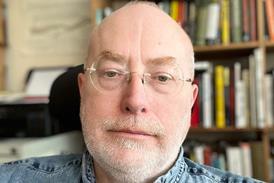The NHS is set to make a fresh push on allowing GPs to prescribe apps under plans for an ‘NHS app store’, plus the rest of today’s news and comment

3.36pm Cambridge University Hospitals Foundation Trust has highlighted that it has been fined by commissioners over the trust missing the accident and emergency waiting target, while it is facing “unrelenting demand pressure”.
Meanwhile, regulator Monitor has also written to the trust, warning its failure to meet the target has “triggered consideration for further regulatory action”, but said it would not open a formal investigation.
Chief executive Keith McNeil drew attention to the “ongoing issue of the proposed fine to be imposed on [Cambridge University Hospitals] as a result of not achieving the emergency department four-hour standard and of the unrelenting demand pressure on our hospital,” in his report to trust’s October board meeting.
2.42pm Care minister Norman Lamb is speaking to the Commons health committee about integrated care pioneers. Watch the session here.
2.10pm Patients have been waiting too long to get treatment at Taunton and Somerset NHS Foundation Trust, which has prompted Monitor to launch an investigation.
For the past year too many patients have waited more than the 18-week national target for day-case or inpatient procedures at the trust.
For the past 9 months the trust also missed the target for treating patients who are referred to hospital for an outpatient procedure.
Having identified that some patients are waiting too long for these procedures, Taunton and Somerset NHS Foundation Trust failed to deliver its own recovery plans to get waiting times back to an acceptable level, and Monitor would like to understand what more could be done to shorten waiting times.
Paul Streat, regional director at Monitor, said: “Too many patients aren’t being treated within a reasonable amount of time at Taunton and Somerset, and we need to find out what the problem is and how we can support the trust in its current efforts to cut waiting times.
“We are investigating the trust to find out why it isn’t meeting these targets, and if we need to take further action to make sure local patients aren’t waiting too long.”
No decision has yet been made by Monitor on whether further action will be needed. Monitor will announce the outcome of the investigation once it is completed.
12.58pm Lord Hunt, Labour peer, tweets:
Will be raising in debate on CQC in Lords tomorrow: Renewed calls for CCGs to join hospital inspections http://t.co/kptaEH5lVu
— Philip Hunt (@LordPhilofBrum) November 4, 2014
12.48pm The numbers of nursing staff employed in NHS hospitals has dipped for the second month in a row for the first time since the start of the “Francis effect” on nurse recruitment.
Latest data from the Health and Social Care Information Centre show the number of full-time equivalent qualified nursing, midwifery and health visiting staff employed in an acute setting fell by 494 posts from June to July to 174,545 posts.
This is down from its peak in May of 175,235, the highest for any month since September 2009 and 6,324 more than in May 2010 when the coalition government came to power.
12.40pm A controversial £235m musculoskeletal contract awarded to private provider Bupa as part of a joint venture is to be independently scrutinised following concerns from Western Sussex Hospitals Foundation Trust.
Coastal West Sussex Clinical Commissioning Group has agreed to commission with the trust an independent impact assessment into the decision to award the contract to a joint venture between Bupa and CSH Surrey.
12.00pm Clinical commissioning groups will be free to allow GP practices to move off the national GP pay for performance framework and to create new contract arrangements, under NHS England’s plans for co-commissioning.
HSJ understands national guidance on CCG co-commissioning of primary care will allow areas to follow Somerset, which earlier this year ditched the quality and outcomes framework for many of its GP practices.
The Somerset move was controversial and the British Medical Association warned it could spell the “Balkanisation of national healthcare”.
11.54am The NHS is set to make a fresh push on allowing GPs to prescribe apps under plans for an “NHS app store” due to be outlined in a key strategy document next week, according to a senior NHS England board member.
Tim Kelsey, the body’s national director for patients and information, said the proposals would be laid out in a strategy document called Personalising Health and Care 2020.
Speaking at the EHI Live 2014 conference in Birmingham, he said NHS England would launch a “voluntary kitemark scheme” for apps, although he indicated plans were far from finalised.
Personalising Health and Care 2020 will set out the framework strategy for the new National Information Board, the group in charge of the NHS’s technology and information strategy. It includes representatives from the Department of Health, NHS England and the Health and Social Care Information Centre.
Mr Kelsey said: “We want to provide GPs, citizens, carers with some level of reassurance…that the NHS has taken a view of a particular digital tool or service and is able to endorse it
“We are going to introduce a kitemarking scheme which we think will really help developers to take advantage of the trust that people have in the NHS [and] in return [they will] voluntarily submit to a degree of assurance, not an endlessly bureaucratic process, but just something that will give people confidence.”
A full story will appear on HSJ shortly.
11.11am A clinical commissioning group leader has renewed calls for CCGs to be given a role in hospital inspections after it emerged an NHS England official had led one in London.
The call comes from Tower Hamlets CCG chair Sam Everington after the Care Quality Commission confirmed Andy Mitchell, the medical director of NHS England’s London area team, had chaired an inspection of Barts Health Trust in January
11.06am Dr Chaand Nagpaul, chair of the BMA’s GP committee said: “This is a timely report from the Nuffield Trust that highlights many of the concerns the BMA have been raising with policy makers.
“It is clear that GPs are overstretched and working hard to ensure that the quality of clinical care remains at its current high standard and that the majority of patients remain very satisfied with the care they receive from their local practice.
“However, a mounting series of pressures is beginning to undermine GP services to patients. Contracting budgets, rising demand, a serious shortage of GPs and a failure to properly fund new services being moved into the community has left many practices struggling to provide enough appointment to patients.
“As the Nuffield Trust, GP services do not need more top down targets. While one response to these pressures is for practices to get bigger, or increasingly work together in groups, we must not lose the flexible and local approach delivered by many smaller practices that is so valued by many patients.
“Fundamentally, we need policy makers to properly support and invest in general practice so that it has the ability to deliver the care that patients deserve.”
11.05am The Times reports that short people are more likely to die of dementia, according to research which claims that health in childhood has effects right through to the end of life.
For every 7cm drop in a scale of heights, men were 24 per cent more likely to die of dementia and women 13 per cent more likely, according to an overview of 18 studies.
Researchers say that being short does not cause dementia but believe height might be a sign of illness or malnutrition in childhood.
Warring metaphors used to describe cancer and its treatments are largely unhelpful for patients and leave those with a terminal form of the disease feeling like failures, according to research by academics at Lancaster University.
The Times reports that patients are bombarded with messages to “fight”, “battle” or “beat” cancer from their family and friends, the media, charities and health professionals.
Researchers analysed 1.5 million words taken from interviews and online discussions involving patients, family carers and health professionals and found that warring metaphors were ubiquitous. Although for some the idea of being in a fight was motivating, for most they were harmful.
One in seven GPs is considering “striking off” patients because they cannot cope with demand, a survey by Pulse magazine has showed.
The Times reports that one in 20 is thinking of shutting down because of pressure, according to an online poll of 600 doctors. A tenth are refusing to accept new patients and laying off staff under funding reforms.
Asthma deaths have continued to rise, with campaigners saying it is scandalous that recommendations to improve NHS care have been ignored, The Times reports.
Last year 1,225 people in the UK died of asthma, the highest number in almost a decade and a rise of 11 per cent since 2009.
Charities say the statistics highlight an unacceptable lack of progress since an in-depth review by the Royal College of Physicians in May found that two thirds of asthma deaths could have been avoided.
10.36am On Thursday HSJ publishes the second BME Pioneers list, while all week we will look at equality and diversity at all levels of healthcare.
A year ago HSJ published its first ever list of healthcare’s influential leaders from black and minority ethnic backgrounds. It sought to highlight the disparity in workforce diversity at the top of NHS leadership. While the project was initially met with scepticism, there has been overwhelming support from readers and the event is still talked about today.
However despite the numerous articles HSJ has published on the topic throughout the past year, very little has changed. A report earlier this year revealed the proportion of people from a black and minority ethnic background at senior levels of the NHS has not improved in eight years; currently at 5.9 per cent, it is at its lowest since 2007.
10.21am The trust special administration process established to dissolve Mid Staffordshire Foundation Trust should be overhauled to make it more “financially efficient”, two of the chiefs taking over its services have said.
Mark Hackett, chief executive of the new University Hospitals of North Midlands Trust, which on Saturday began running Stafford Hospital said the process should be reviewed in light of the expense and the time it took.
This view was echoed by Chris Bown, interim managing director at Stafford Hospital, which was renamed County Hospital on the same day.
10.17am Surrey Downs Clinical Commissioning Group’s Referrals Support Service has been expanded to cover psychological therapy appointments, after making a big impact in its first year of operation.
Since the roll out three months ago, the percentage of mental health patients waiting over 28 days to commence treatment has reduced radically – from around 70 per cent to just 26 per cent - with early users of the service reporting to feel more informed about their healthcare options and confident that they are getting the support they need.
The RSS receives referrals for treatment from local GPs, and then liaises with community, hospital, and out-of-hours services in the area to offer greater clinical choice more quickly, reaching out to 100 per cent of patients within one day of having received their case.
Dr Jill Evans, Surrey Downs CCG Governing Body lead for Mental Health, said: “We heard from patients that the old system was confusing and slow to respond to their needs; many of them felt lost in it.
“By bringing together local intelligence streams into one place, the RSS has quickly developed an expert understanding of the healthcare pathways available and is helping patients avoid falling foul of a postcode lottery.
“This is just the start of our work to improve mental health provision. We are now looking for patients and carers with experience of local mental health provision, from each of our 33 GP practices, to work with us as part of a ‘virtual’ group to raise awareness of the services available and advise us on what more can be done to better meet the needs of our local population.”
10.15am The Daily Mail writes that patients who “dare” complain about poor NHS care are made to feel frightened and left exhausted and disheartened, a report warns.
Many of those who raised concerns were confronted by hostile staff who denied doing anything wrong.
The Patients Association report found that half of complaints were not handled well and warned that the culture of secrecy in the NHS had barely changed since the Mid Staffordshire scandal.
9.55am A looming staffing crunch and significant funding cuts in the last year alone mean that general practice in England must innovate to survive, according to new research published today.
Drawing on analysis of the latest data on GP services and the results of a separate survey of 100 influential health and social care leaders, the Nuffield Trust argues that general practice is in need of both more money and significant reform to enable it to meet the challenges set out by NHS England in its recent Five Year Forward View.
The Nuffield Trust’s report ‘Is General Practice in Crisis?’ describes how the number of one-doctor GP practices has halved in seven years, from 1,717 in 2006 to 891 in 2013, whilst the number of practices with ten or more doctors has grown by over 75 per cent. The separate survey of health and social care leaders finds that over three-quarters (77 per cent) of respondents agree that small GP practices are no longer fit for purpose.
The briefing also shows that reported funding for general practice has fallen by almost £300m in a single year, between 2012-13 and 2013-14.
The authors argue that general practices will need extra resources and support to link up with each other and find new ways to meet the different needs of their patients.
The Nuffield Trust report finds that:
- There is evidence of a looming staffing crunch in general practice, with over half of doctors over the age of 50 saying they’ll quit direct patient care in the next five years, a rise of over a third since 2010.
- At the same time, more than 1 in 10 slots of new GP trainees were left unfilled this year and there are increasing numbers of GPs working part-time.
- In the last financial year alone (2013-14), spending on GP services fell by 3.8% or £287m, according to the most recent Department of Health annual report and accounts.
- The briefing notes a ‘worrying’ lack of basic information on numbers of GP consultations, which make it impossible to determine the extra pressures facing GPs. However, the report recognises that an ageing population with complex needs is putting general practice under strain.
The survey of health and social care leaders, the second of four being conducted in the run-up to the election, shows that:
- Leaders overwhelmingly recognise the need to move away from the traditional family doctor model: a third of respondents said that general practice is in crisis, and two-thirds said it is in need of reform.
- While over half of respondents support more funding, many of them said it should not come without changes to the way general practice operates.
Nigel Edwards, Chief Executive of the Nuffield Trust said: “There is no doubt that general practice is facing great pressures at the moment. Funding is tight, there is an impending workforce crisis and - perhaps most significantly of all - the needs of patients have changed beyond recognition, as the population lives longer with chronic conditions.
“As our panel of health and social care leaders recognise, the single-doctor practice is now struggling to deal with these challenges and is looking increasingly inviable. But more money alone isn’t the answer.”
9.50am Looking to the morning papers,The Daily Telegraph reports that thousands of patients cannot be offered statins because of “nonsensical” NHS red tape, experts have warned.
In a letter to the newspaper, charities and leading neurologists call for an overhaul of the drug laws, to allow medicines to be “repurposed” to treat diseases other than those for which they were first licensed.
The drugs may be able to slow the progress of multiple sclerosis.
Elsewhere, the paper reports that nurses will have to be able to speak English to work in Britain, under new rules allowing language tests on those who come here from elsewhere in the EU.
The clampdown follows concerns by ministers that patients have suffered poor care from staff who were unable to communicate with them.
The new proposals, launched for public consultation, mean that for the first time, regulators will be allowed to insist on language tests for any nurse applying to work in this country.
Hillingdon council’s health and wellbeing board has refused to ratify the plan following a dispute over how new costs attached to the Care Act would be funded.
The council had expected to receive around £800,000 routed through Hillingdon Clinical Commissioning Group via the better care fund specifically to meet those costs.























No comments yet